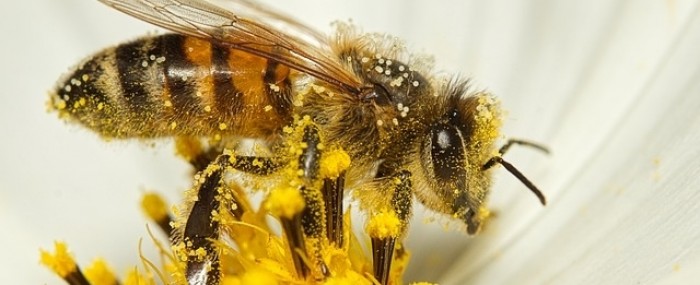
Startup wants to train bees to pollinate coffee more precisely
17 de janeiro de 2023By Elton Alisson | FAPESP Innovative R&D – Like dogs, bees can be trained as sniffers and are capable of performing a number of tasks that assist agricultural production. Thanks to their olfactory memory, sniffer bees learn to pollinate economically important agricultural crops such as coffee (Coffea arabica) more effectively by associating the scent of the crop with the environment where they collect pollen while feeding on nectar from flowers.
“Bees use signals such as color and scent to find and pollinate flowers. These signals can be used to train them in the laboratory so that they can more easily recognize target crops when colonies are released in the field and perform pollination more efficiently,” said ecologist João Marcelo Robazzi, who specializes in training bees.
To pursue these goals, corroborated during his PhD research on ecology at the State University of Campinas (UNICAMP) in São Paulo state, Brazil, and in neurosciences at Paul Sabatier University in Toulouse, France, Robazzi partnered with Marcela Barbosa, who has a PhD in entomology from the University of São Paulo (USP) in Ribeirão Preto, and Maria Imaculada Zucchi, a professor at UNICAMP and a researcher at the São Paulo’s Agency for Agribusiness Technology (APTA) in Piracicaba.
Together they founded PollinTech, a startup that aims to enhance the precision of coffee pollination by Africanized honeybees (Apis mellifera) via smell. “The aim of this smell-guided pollination strategy is not only to raise the productivity of coffee groves but also the quality of the beans,” Robazzi said.
To train the bees, the researchers developed synthetic biomolecules by blending artificial odors, which bees perceive as the natural perfume of coffee blossom. This work was part of a project supported by FAPESP’s Innovative Research in Small Business Program (PIPE).
By synthesizing these biomolecules, which mimic the smell of coffee blossom, and training bees to recognize them, the researchers expect to increase coffee production by more than 18%. “The solution we developed to mimic coffee fragrance will be used to train bees in the laboratory to locate this target crop more easily in the field and obtain a higher pollination rate, boosting coffee production and quality,” Robazzi said.
Preliminary results of laboratory experiments show the bees do not perceive differences between the synthetic biomolecules and the natural smell of coffee blossom. “The bees identified our blend with the natural odor of the flowers. Having been exposed to the synthetic biomolecules in the lab, they’ll know which smell to home in on when they’re released in the field and will pollinate more plants,” Barbosa said.
Studies conducted in other countries have shown that sunflower yields can be increased by 57% when the crop is pollinated by bees trained in a similar manner.
Low awareness
About 90% of the crops grown worldwide depend on pollinators to some extent, according to the Intergovernmental Science-Policy Platform on Biodiversity and Ecosystem Services (IPBES). Bees pollinate 75% of all plants cultivated and used directly or indirectly around the world.
In Brazil, the annual value of food crop pollination is estimated to be BRL 43 billion (now about USD 8.3 billion), and coffee accounts for 12% of this total. Of the 191 plants used for food production in Brazil, 114 depend on pollinators to reproduce (read more at: agencia.fapesp.br/29901).
“Research shows that pollinators increase coffee yields by 18% on average. This is reflected not just by quantity but also by the quality of the beans and of the end-product. According to some studies, certain sensory characteristics of the beverage can be enhanced by pollination,” Barbosa said.
Despite these benefits, when they participated in the 22nd PIPE High Tech Entrepreneurship Program (PIPE Entrepreneur), the researchers discovered that Brazilian coffee growers are not yet aware of the role played by pollination in coffee production.
“We believe commercialization of the solution we’ve developed should involve awareness raising and education of our customers about the importance of pollination to the coffee industry,” Robazzi said.
In interviews with prospects conducted during the training program to sense whether they could market the solution, they felt that specialty coffee growers were more interested than the rest, at least initially.
“We see the specialty coffee segment as an initial market, although our technology has the scalability to be extended to other growers, especially if they’re conducting a transition to regenerative agriculture,” Barbosa said in a presentation to the closing session of the training program on December 7, 2022.
The researchers now plan to test the solution in the field and develop it for use on other economically important crops, such as orange, avocado and açaí.
The presentations by the startups that took part in the 22nd PIPE High Tech Entrepreneurship Program can be watched at: fapesp.br/15807.
